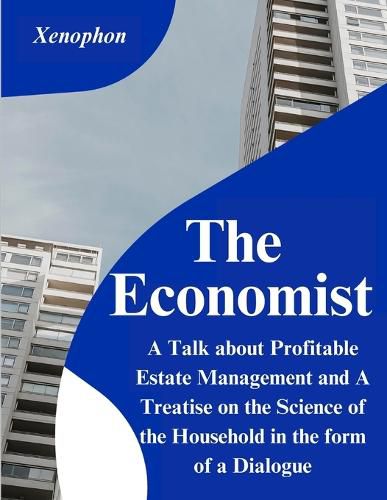Readings Newsletter
Become a Readings Member to make your shopping experience even easier.
Sign in or sign up for free!
You’re not far away from qualifying for FREE standard shipping within Australia
You’ve qualified for FREE standard shipping within Australia
The cart is loading…






This title is printed to order. This book may have been self-published. If so, we cannot guarantee the quality of the content. In the main most books will have gone through the editing process however some may not. We therefore suggest that you be aware of this before ordering this book. If in doubt check either the author or publisher’s details as we are unable to accept any returns unless they are faulty. Please contact us if you have any questions.
Xenophon the Athenian was born 431 B.C. He was a pupil of Socrates.
He marched with the Spartans, and was exiled from Athens. Sparta gave him land and property in Scillus, where he lived for many years before having to move once more, to settle in Corinth. He died in 354 B.C.
The Economist records Socrates and Critobulus in a talk about profitable estate management, and a lengthy recollection by Socrates of Ischomachus' discussion of the same topic.
INTERLOCUTORS
Socrates and Critobulus
At Chapter VII. a prior discussion held between Socrates and Ischomachus is introduced: On the life of a "beautiful and good" man. In these chapters (vii.-xxi.)
Socrates is represented by the author as repeating for the benefit of Critobulus and the rest certain conversations which he had once held with the beautiful and good Ischomachus on the essentials of economy.
It was a tete-a-tete discussion, and in the original Greek the remarks of the two speakers are denoted by such phrases as {ephe o 'Iskhomakhos-ephen egio}-"said (he) Ischomachus," "said I." (Socrates) To save the repetition of expressions tedious in English, I have, whenever it seemed help to do so, ventured to throw parts of the reported conversations into dramatic form, inserting "Isch."
"Soc." in the customary way to designate the speakers; but these, it must be borne in mind, are merely "asides" to the reader, who will not forget that Socrates is the narrator throughout-speaking of himself as "I," and of Ischomachus as "he," or by his name.
$9.00 standard shipping within Australia
FREE standard shipping within Australia for orders over $100.00
Express & International shipping calculated at checkout
This title is printed to order. This book may have been self-published. If so, we cannot guarantee the quality of the content. In the main most books will have gone through the editing process however some may not. We therefore suggest that you be aware of this before ordering this book. If in doubt check either the author or publisher’s details as we are unable to accept any returns unless they are faulty. Please contact us if you have any questions.
Xenophon the Athenian was born 431 B.C. He was a pupil of Socrates.
He marched with the Spartans, and was exiled from Athens. Sparta gave him land and property in Scillus, where he lived for many years before having to move once more, to settle in Corinth. He died in 354 B.C.
The Economist records Socrates and Critobulus in a talk about profitable estate management, and a lengthy recollection by Socrates of Ischomachus' discussion of the same topic.
INTERLOCUTORS
Socrates and Critobulus
At Chapter VII. a prior discussion held between Socrates and Ischomachus is introduced: On the life of a "beautiful and good" man. In these chapters (vii.-xxi.)
Socrates is represented by the author as repeating for the benefit of Critobulus and the rest certain conversations which he had once held with the beautiful and good Ischomachus on the essentials of economy.
It was a tete-a-tete discussion, and in the original Greek the remarks of the two speakers are denoted by such phrases as {ephe o 'Iskhomakhos-ephen egio}-"said (he) Ischomachus," "said I." (Socrates) To save the repetition of expressions tedious in English, I have, whenever it seemed help to do so, ventured to throw parts of the reported conversations into dramatic form, inserting "Isch."
"Soc." in the customary way to designate the speakers; but these, it must be borne in mind, are merely "asides" to the reader, who will not forget that Socrates is the narrator throughout-speaking of himself as "I," and of Ischomachus as "he," or by his name.